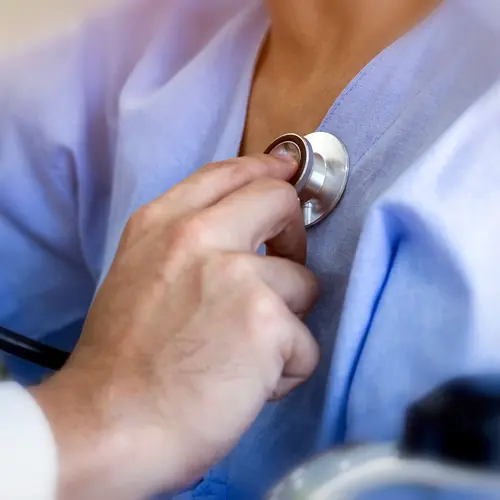I had no inkling I had heart disease until December 2005, when I had two minor episodes of mild angina (pain in the chest area). My primary care physician ran an electrocardiogram but saw nothing abnormal. I was an athletic, lean 53-year-old who ate nutritious foods. He decided I was just stressed and gave me the go-ahead to go to Nicaragua on vacation.
But while there, the angina went from mild to severe. The pain would come and go, but on three separate occasions the pain was the most massive thing I could imagine. Every little motion made it worse. I was sweating and could not move. A local doctor gave me medication to bring my blood pressure down and stop the angina. But I couldn't fly home for two weeks because the changes in airplane cabin pressure could induce a heart attack.
Major Artery Blockages
When I got home, I went to the local emergency room. The staff took chest X-rays then immediately ordered an ambulance to take me to another hospital. Two of my arteries were 99% blocked, a third was 80% blocked, and I had other blockages further down my arteries. It seemed impossible -- three weeks earlier I had felt fine. But a secondary system of blood vessels had grown around my heart and was doing the work of the blocked arteries. I had triple bypass surgery the following day.
Afterward, when my wife asked about my prognosis, the doctor responded with a stony silence. I knew then I had to be committed to my recovery. I work as a computer programmer and am quite methodical, so I set up a recovery program. Week by week I built up my strength, starting with walking to the kitchen, then walking down the block, and then using my treadmill, rowing machine, and [exercise bicycle]. I monitored my heart rate and wrote down everything I did and how it affected my heart and breath. I also researched journal articles on heart disease, nutrition, and exercise rehab.
By spring 2009, I could play badminton for three hours without breaking. By 2010, I could play full-court basketball. I was the only one over the age of 20, and I was not run off the court.
Larry's Life Lessons
"Use a heart rate monitor so you can avoid doing too much. At first, you should not be breathing much harder than you do during a warm-up."
"Don't be in a hurry. Recovery takes time. Most people with heart disease think they can't do anything physical. Or they try to recover too fast and get injured."
"Eat foods that are high in antioxidants and low in fat."
Expert Tip
"Pedometers, food diaries, and scales are associated with positive changes in behavior. They work when we have trouble getting motivated." -- James Beckerman, MD
Find more articles, browse back issues, and read the current issue of "WebMD the Magazine."

